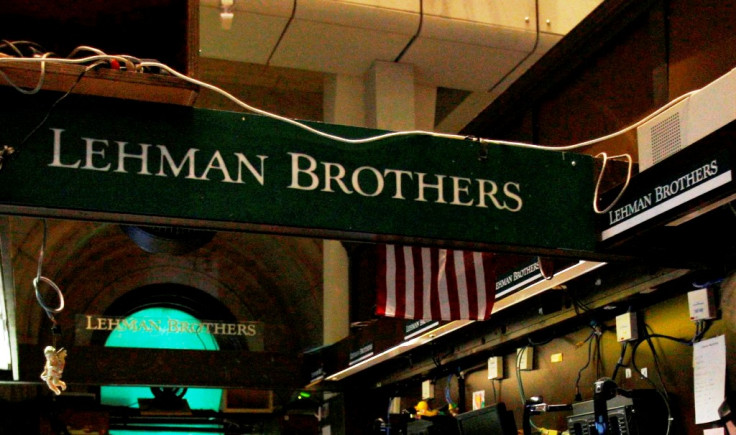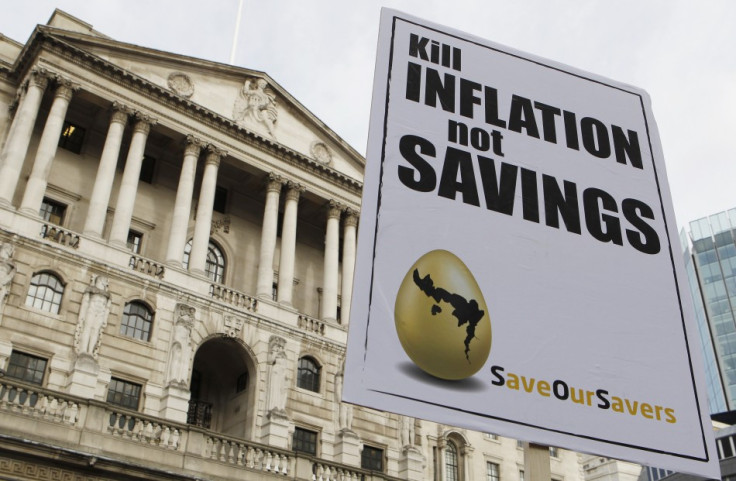The global financial crisis and its decade-long shadow over UK savers and investors
There's a division between the 'haves' and 'have nots' courtesy of wage growth stagnation and erosion of spending power.

It was still just about possible, ten years ago, to kid ourselves that everything would be OK. My family and I were wrapping up a holiday in the US during which £1 had bought $2 and eating out or shopping felt like one big half-price sale.
Yes, there were straws in the wind. BNP Paribas had halted redemptions on three of its funds. The American mortgage market had been flashing red lights for a few months to those specialist investors who actually knew what sub-prime meant. But for the rest of us here in the UK, the financial crisis was still something that had happened ten years previously in far-away Asia.
Our complacency would be short-lived of course. Two weeks later, on 14 September, queues formed outside Northern Rock.
The credit crunch was no longer someone else's problem but the sickening realisation that even here at home we might not be able to rely on the safety of our money in the bank.
The events of the 12 months between the run on Northern Rock and the collapse of Lehman Brothers are now fading in the memory alongside the snaps of that family holiday. But the financial world changed in late summer 2007 in three ways that continue to cast a long shadow over British savers and investors today:
1. Hard as it is to believe today, interest rates had been rising in the UK for four years in the summer of 2007 since they bottomed out at 3.5% in July 2003 in the wake of the bursting of the dot.combubble.
In July 2007 the Bank of England had actually raised rates for one last time, by 0.25% to 5.75%, as it fretted about rising inflation. Less than two years later, in March 2009, the base rate had been slashed to a 300-year low of 0.5% where it remained until a nervous Bank cut it even further to 0.25% in the wake of the EU referendum.
Record low interest rates have been good news for borrowers and for investors. They have fuelled a dramatic recovery in both house prices and stock markets over the past eight years. For those stung by the second savage bear market in a decade and sheltering in cash, however, perennially low interest rates have been a disaster.
If you had saved £10,000 into the average UK savings account over the past ten years, it would be worth £10,460 today. The cost of living has risen by 25% over the same period, meaning your savings will buy a fifth less than they would have a decade ago.
Putting the same £10,000 to work in the UK stock market, measured by the FTSE All Share index, would have seen it grow to £16,847, more than keeping pace with rising prices. Over the same period, the price of the average house in London has risen from a little under £300,000 to nearly £500,000.

2. The collapse in interest rates, the implementation of quantitative easing and the consequent reduction in bond yields has created an unusual market environment over the past ten years in which previously uncorrelated asset classes have all risen strongly.
The top performing assets since 2007 have actually been high yield bonds and emerging market debt.
Both have narrowly outperformed US equities over the period, easily the best-performing geographical region.
All three have more than trebled in value in ten years. Diversification has still made sense, because cash and, even more so, commodities have been such a disappointment. But during most of the last decade it hasn't really mattered which asset an investor bought. Just taking part has been enough.
At the sector level, however, the dispersion of returns has been much more notable. The benefits of picking the winners (or more realistically, diversifying away the risk of picking the losers) have been significant.
The 10-year cumulative returns from technology stocks, for example, have been 280% while materials companies have barely washed their faces at just 3.5% and financials are still underwater on average.
Apart from technology, the companies which have done the best since the crisis have been those which looked most reliably bond-like in a low-growth, low-income world: consumer staples and healthcare.
3. Perhaps the most significant financial development of the post-crisis era, however, has been the stagnation of wage growth and the steady erosion of the spending power of the majority of people who have not benefited from the market gains of the past ten years.
The past ten years have been a period of division. If you owned your house in 2007 and have held onto a high-skilled job you may well be thinking: Crisis, What Crisis? But if you were young, or unskilled, living in rented accommodation or dependent on an income from your cash savings, you will be glad to see the back of the past decade.
Wage growth in the summer of 2007 was 4-5%, running ahead of rising prices and making people feel progressively wealthier.
That social contract has broken down in the past ten years with earnings flat-lining since the 2008/9 recession at around 2%.
For much of the period, wages have grown less quickly than inflation, which has been boosted in the UK by the fragility of the post-Brexit pound. As each month rolls by many people are feeling a little bit poorer.
There are plenty of reasons for this shortfall. The jobs market may not be working as well as it used to. Underemployment - people working less than they would choose - is keeping a lid on wage bills. Productivity has been a persistent disappointment. Automation is killing jobs at an alarming pace.
So the past ten years have been a period of division. If you owned your house in 2007 and have held onto a high-skilled job you may well be thinking: Crisis, What Crisis?
But if you were young, or unskilled, living in rented accommodation or dependent on an income from your cash savings, you will be glad to see the back of the past decade.
Looking ahead to the next ten years, the fortunes of the lucky few who have enjoyed a one-off revaluation of their assets are likely to depend on an improvement in the outlook for the unlucky many. In the meantime, I'm not holding my breath for any more half-price American holidays.
Tom Stevenson is Investment Director for the Personal Investing business at Fidelity International. Tom joined Fidelity in March 2008. He acts as a spokesman and commentator on investments and is responsible for defining and articulating the Personal Investing business' views. Prior to joining Fidelity, Tom was a financial journalist writing for various publications including Investors Chronicle, The Independent and The Telegraph.
© Copyright IBTimes 2024. All rights reserved.






